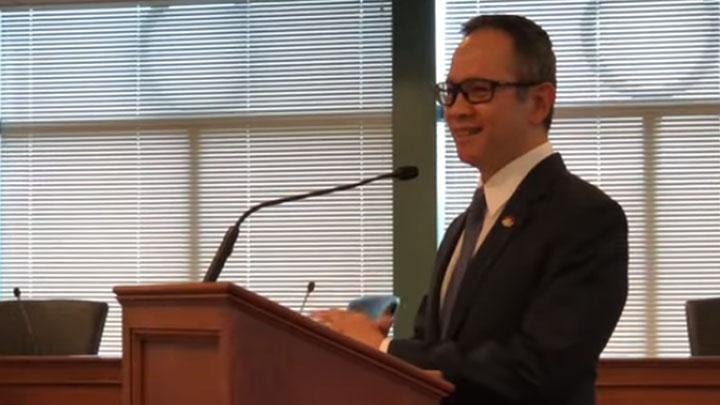
By: Fauzi Ichsan | Senior Economist and CEO, Indonesia Deposit Insurance Corporation, 2015-2019.
Covid-19 has truly wreaked havoc to the global economy, as it sinks towards the worst recession since the 1930s. For the third time, the IMF has cut further its global growth forecasts, predicting the world’s economy will now shrink by 4,9% and Indonesia’s by 0,3% in 2020. Even the assumption of a quick “V-shape” recovery in 2021 is dependent on how soon an effective anti-Covid vaccine is discovered and distributed to the public. Absent such vaccine, which medical experts say will only be ready within 6-9 months at best, a second-wave Covid pandemic is possible and may result in a much weaker, “W-shaped” economic recovery.
Learning from the global financial crisis in 2008, the world’s central banks and fiscal authorities reacted aggressively. To prevent a liquidity crisis, in the first half of 2020 central banks have sharply cut their policy rates – the US Federal Reserve by 150bps to 0,25%, Bank of England by 65bps to 0,1% while Bank Indonesia by 75bps to 4,25%. Other central banks, like the European Central Bank and Bank Japan, which had already near-zero policy rates even before the pandemic, were not able to give stimulus by cutting rates. That said, as in 2009, the big central banks also began to pursue the policy of “quantitative easing” of printing money to buy government and corporate debts, injecting more liquidity into the financial system. In March-2020, the Federal Reserve targeted USD 700bn, ECB EUR 750bn and Bank of England GBP 200bn of fresh cash that they announced would be injected into the financial system.
The actual amounts are likely to exceed the targets. Fitch Ratings believe G7 central banks alone may inject USD 6tn in 2020 – about 7% of 2019 GDP. Moreover, this estimate excluded QE policies pursued by central banks in emerging markets, like Brazil and Indonesia. Meanwhile, fiscal authorities are also injecting record fiscal stimulus, by sharply raising government spending amid sharp deceleration in tax revenues. In 2020, global fiscal authorities are likely to spend more than USD 5tn in anti-Covid fiscal stimulus. Japan’s stimulus package alone is likely to be around 21,1% of GDP, United States’ 12,1% and EU’s 4,3%. In emerging markets, the stimulus size varies from Brazil’s 11% to Indonesia’s 4,4% and Mexico’s 0,7%. Overall, to minimize the negative impacts of the pandemic, governments are sharply increasing their spending and budget deficits, which they finance by issuing debts. These debts are often bought, directly or indirectly, by central banks that finance the purchases by printing money.
The combination of interest rate cuts, quantitative easing and increased fiscal deficits was effective in minimizing the impacts of the global financial crisis in 2008 and recession in 2009. The crisis then was initially triggered by a sub-prime mortgage crisis in the US, which resulted in a global banking and liquidity crisis – all conventional kinds of crisis that had happened before in history. However, the 2020 Covid crisis is different and may not be effectively tackled by conventional monetary and fiscal policy measures. The effectiveness of these policies in preventing deep economic contractions rests on the assumption that they will stimulate economic activities and demands. However, these demands have been curtailed by public health authorities’ imposition of urban lockdowns and social distancing to slow down the pandemic. This explains why, despite record monetary and fiscal stimulus, the world’s economy is still contracting sharply.
With or without the discovery of anti-Covid-19 vaccine, the only way for economies to recover is to end urban lock-downs and social distancing among the population – thereby allowing expansionary monetary and fiscal policies to work. Without a vaccine, unfortunately opening up economies is also likely to spread the pandemic, infecting and killing more people, before any “herd immunity” develops among the healthier population. Currently, given weak demands for goods and services, the private sector has been laying off workers, which further weakens demands. These demands are unlikely to sharply recover with traditional rate cuts and increase in banking liquidity – as long as unemployment is rising, corporates are in survival (rather than expansion) mode while economic activities are frozen. Even cash transfers by governments to the poor and unemployed, considered the most impactful measure to help household demands, are less effective given restrained economic activities.
Whether or not urban lockdowns and social distancing are ended soon, central banks and governments are likely to continue their aggressive monetary and fiscal policies in the next 12 months or so. This means governments’ budget deficits are likely to remain high with record-breaking debt accumulation, while central banks’ quantitative easing continues with record-breaking “money-printing”. With acceleration in money in circulation, at a time when the real economy is contracting (as most of the extra money injected is not spent on employment-generating investment and economic activities), more money will chase the most liquid of assets: global stocks and bonds.
In the US, for instance, despite tanking by around 25% in Q1-2020, the S&P 500 stock market index is now only less than 3% below its level in December-2019 – while US GDP is likely to contract by 8% in 2020. In China, the source of the Covid pandemic, the Shanghai stock market index is now only around 1% below its level in December-2019 – a very normal “market correction”. Unless more of the funds injected by monetary and fiscal authorities generate real economic activities, instead of simply preventing a sharper deterioration of the crisis, there is a risk that they will also further fuel inflation in financial assets – without fundamentally solving the problems of rising unemployment and poverty due to the Covid pandemic.
*)
DISCLAIMER
Articles published in the “Your Views & Stories” section of en.tempo.co website are personal opinions written by third parties, and cannot be related or attributed to en.tempo.co’s official stance.























